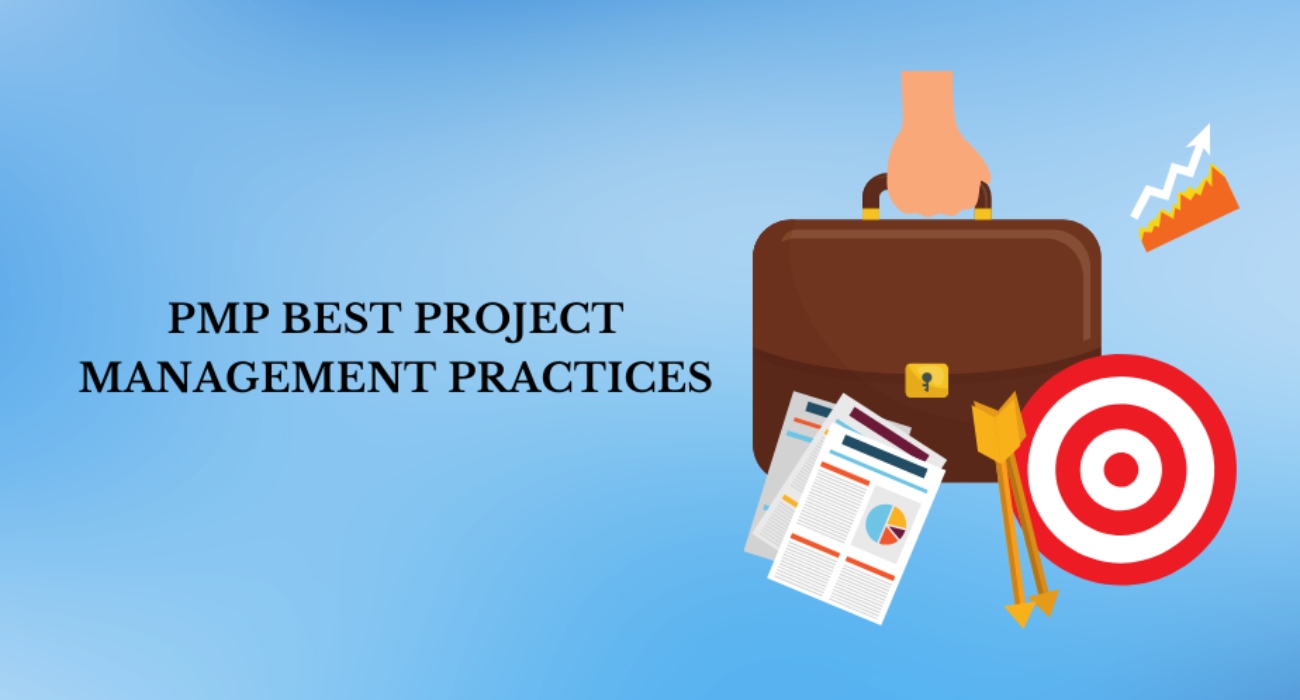What are Project Management Practices?
Project management practices are the methods, processes, and techniques used to plan, execute, monitor, and control projects. These practices are designed to help ensure that projects are completed on time, within budget, and to the satisfaction of stakeholders. The project management practices typically include initiation, planning, execution, monitoring and controlling, and closing the project. The knowledge areas involved in project management practices include integration management, scope management, time management, cost management, quality management, resource management, communication management, risk management, procurement management, and stakeholder management.
One can go through Online PMP training to get a better understanding of Project management Practices.
A. Understanding the Five Process Groups
The five process groups in project management are a systematic and standardised approach to managing projects. They are:
1. Initiating: This process group involves defining and documenting the project's scope, objectives, and stakeholders.
2. Planning: This process group involves creating a comprehensive plan for executing and managing the project, including developing schedules, budgets, and risk management plans.
3. Executing: This process group involves carrying out the project according to the plan, including managing resources, communication, and quality.
4. Monitoring and Controlling: This process group involves tracking progress, identifying and addressing issues, and making adjustments to the plan as necessary.
5. Closing: This process group involves wrapping up the project, including finalising all deliverables and documentation, releasing resources, and conducting a post-project review.
B. Knowledge Areas
The knowledge areas in project management refer to specific areas of expertise required for successful project management. The ten knowledge areas are:
1. Integration Management: This knowledge area involves coordinating all aspects of the project, including scope, schedule, budget, and quality.
2. Scope Management: This knowledge area involves defining and managing the project's scope, including scope definition, control, and verification.
3. Time Management: This knowledge involves planning and managing project schedules, including activities, dependencies, and deadlines.
4. Cost Management: This knowledge involves planning, estimating, and controlling project costs, including cost estimation, budgeting, and cost control.
5. Quality Management: This knowledge area ensures that the project meets quality standards and requirements, including quality planning, quality assurance, and quality control.
6. Resource Management: This knowledge area involves managing project resources, including human resources, equipment, and materials.
7. Communication Management: This knowledge involves planning, executing, and controlling project communication, including stakeholders, team members, and stakeholders.
8. Risk Management: This knowledge area involves identifying, assessing, and controlling project risks, including risk identification, analysis, and response.
9. Procurement Management: This knowledge involves planning, executing, and controlling procurement activities, including procurement planning, soliciting and awarding, and managing contracts.
10. Stakeholder Management: This knowledge area involves identifying, analysing, and managing stakeholders, including stakeholder engagement, communication, and management.
Conclusion
PMP (Project Management Professional) is a widely recognised certification in the project management industry. Understanding the five process groups - Initiating, Planning, Executing, Monitoring and Controlling, and Closing - and the ten knowledge areas - Integration Management, Scope Management, Time Management, Cost Management, Quality Management, Resource Management, Communication Management, Risk Management, Procurement Management, and Stakeholder Management - are essential for successful project management. By applying best practices and utilising PMP frameworks and techniques, project managers can deliver projects on time, within budget, and to stakeholders' satisfaction.
As you prepare for a PMP interview, be sure to be familiar with these best practices and be ready to discuss how you have applied them in past projects. Some common PMP Interview Questions include: Can you describe a time when you had to manage a project with limited resources? How did you handle changes to the project scope? How have you worked with project risks in the past? Demonstrating your understanding of PMP best practices and real-life experience in applying them will be critical to a successful PMP interview.
Also Check: Write for us Newspaper is the Category For Blogs And Articles Accepted at Search Chandigarh Website


